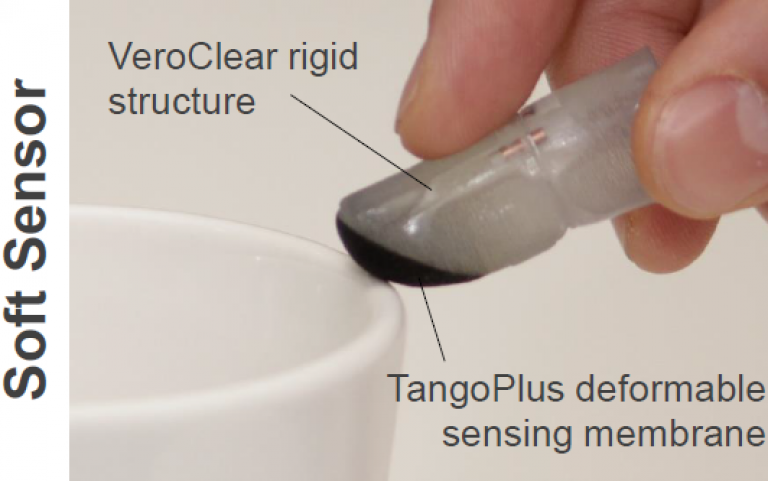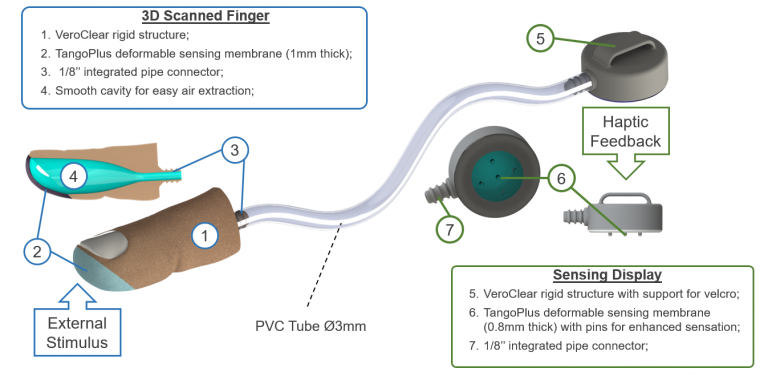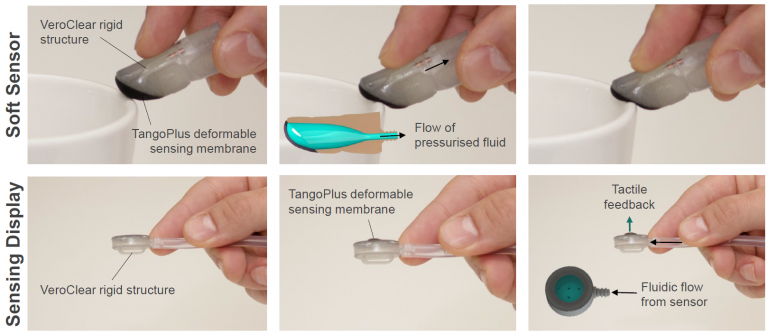Making the feeling of touch accessible to all
Could prosthetic hands with haptic feedback become available to anyone who needs them? Dr Helge Wurdemann of UCL Mechanical Engineering has developed a combination of touch technology and 3D printing which could make simple ‘bionic’ hands available to anyone in the world.

UCL researchers have developed a method to produce sensation for amputees who lost their fingers or hand and depend on prosthetic devices instead. Using latest multi-material additive manufacturing technology, design engineering and hydraulic principles, more accessible and low-cost haptic feedback can be produced than current options.
Prosthetic and robotic limbs with embedded haptic feedback (combined sensing modules at finger tips and actuation interfaces at the residual limb) are costly and often not affordable or available, particularly for NHS patients and in low income countries. For instance, a multi-grip bionic hand can cost between £25,000 and £60,000.
The UCL team, led by Dr Helge Wurdemann (UCL Mechanical Engineering), used ‘haptic feedback’ based on fundamental mechanical principles to reproduce the feeling of touch. Haptic technology uses different techniques to replicate the feeling of touch sensations. It is currently used in surgical robots and even in laser quest in a simple form, where the vest vibrates when shot at.
The manufacturing process uses multi-material 3D printing to integrate purely mechanical sensors and actuators into prosthetic devices. This should make producing practical body-powered and robotic limbs much more affordable in many countries, transforming the lives of thousands of people.
The team, which includes plastic and hand surgeons, has developed a prototype and hope to make the technology widely available for all to use.


Meet the minds behind this discovery at the It's All Academic Festival on 5 October.
Links
- The Soft Haptics Lab at UCL
- UCL Mechanical Engineering
- Dr Helge Wurdemann profile
- Can we build hands with real haptic feedback? An interview with Dr Wurdemann on Youtube
- How does the haptic feedback system work? An explanation by Andrea Palombi on Youtube
Images
- provided by UCL Mechanical Engineering
 Close
Close

